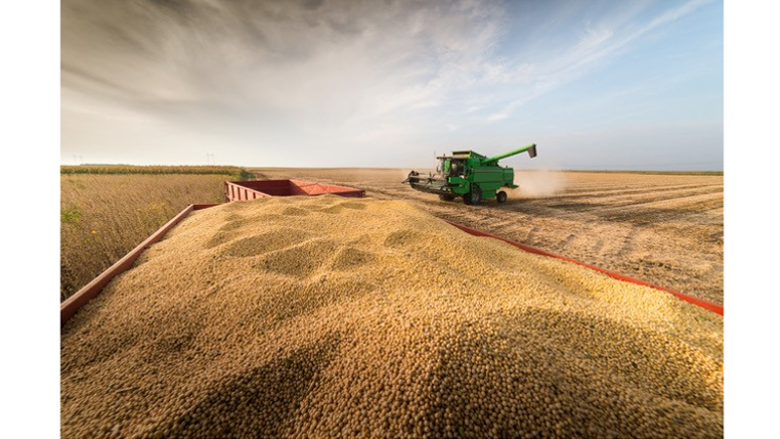Feed producers and farmers cautioned on trypsin inhibitor exposure
Feed expert says rising use of non-traditional soybean ingredients comes with risk.

As cost pressures across the feed industry drive more feed producers and farmers to alternative soybean ingredients, more awareness is needed on the risk of exposure to trypsin inhibitors that can undermine feed quality for pigs, poultry and ruminants.
“Exposure to trypsin inhibitors can be an overlooked consequence of using these alternative ingredients, leading to reduced performance and profitability,” said Rob Patterson, VP of innovation and commercialization with CBS Bio Platforms. “It’s important we raise awareness of this issue, testing options and how to mitigate the risk.”
Cost pressures driving alternative feed
CBS Bio Platforms is an innovation-focused company that researches, develops and manufactures a wide range of products used in feed, food, industrial and environmental applications. This includes feed supplement options across a broad portfolio of CBS Feed Science Platforms (FSPs). The company’s resources include a strong feed science network, including partnerships with leading university research programs, which continually evaluates feed ingredients and feeding strategies.
“A key trend we’ve followed over the past two years is the rising interest in alternative protein sources, in response to cost pressures,” said Patterson.
Soaring soybean meal prices over this period in particular have been a major factor affecting feed producers and farmers by driving up feed costs. This has lead to increased consideration and adoption of less expensive dietary proteins, such as whole or full-fat soybeans that have been cooked, pressed or extruded in one way or another.
Implications of non-traditional soybean ingredients
However, the presence and level of trypsin inhibitors (TI) in these products is an issue many involved have likely overlooked when they begin to evaluate or use non-traditional soybean ingredients, said Patterson.
Trypsin inhibitors are natural anti-herbivore enzymatic compounds produced by soybeans and other legumes that block the production of the digestive enzyme trypsin, he explained. Trypsin is an important enzyme for protein digestion and when not produced in sufficient quantities, undigested protein lingers in the gastrointestinal tract (GIT), which leads to bacterial overgrowth, fermentation of undesired compounds and ultimately, diarrhea.
“These compounds are well described and understood to be problematic when fed to livestock above certain thresholds,” said Patterson. “For example, excessive exposure to TI, in addition to reducing nutrient absorption through diarrhea generation, also reduces total plane of health thereby making animals more susceptible to enteric disease infection as well as exacerbating mycotoxicosis.”
Taking steps to reduce risk
As awareness of this issue increases, feed producers can take steps to reduce the risk of TI exposure, Patterson said. The first course is to focus on detection, he said. “It’s important to understand the process by which the alternative soybean ingredient has been produced and to implement routine testing of TI levels for each batch received.”
A second step is to then limit exposure. With batch-to-batch testing in place, feed producers can set limits within a formulation system that can greatly reduce the risk of over-exposing livestock to dietary TI. “In addition, treatment options can be implemented – or when already in place, relied upon – whereby heat can be applied to the feed via pelleting, extrusion or expansion in order to deactivate TI in the ingredients[,]” Patterson said.
Attention to this issue is urgently needed to ensure livestock performance and health is maximized, especially under challenging market conditions where margins are thin and operations can become needlessly more vulnerable if not optimally managed, Patterson said. “It’s time to spread the word on the risks of trypsin inhibitor exposure, as we continue to develop new and better strategies to help feed and livestock sectors meet the challenge of high feed costs.”
The CBS portfolio of solutions includes FeedCheck Soy — an innovative tool that allows for rapid on-site analysis of soybean meal quality, including for residual urease, which is a marker for TI levels. A feed additive option from CBS to help mitigate trypsin inhibitor levels is ProSparity. Visit the CBS team at World Pork Expo at booth G414.
Read Rob Patterson’s full article on the trypsin inhibitor issue on the CBS website.
Source: CBS Bio Platforms
Looking for a reprint of this article?
From high-res PDFs to custom plaques, order your copy today!






